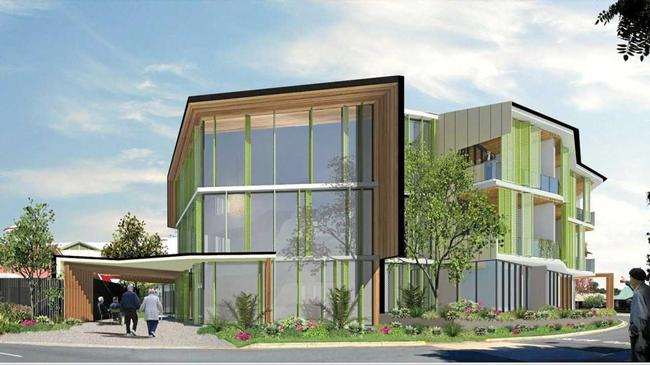Banora Point retirement village given green light to expand
"I think that was definitely worth while going to court"

Tweed Heads
Don't miss out on the headlines from Tweed Heads. Followed categories will be added to My News.
A $16 MILLION retirement village development at Banora Point is about to be approved through the courts after councillors knocked the project back last year.
Ratepayers have already forked out $40,000 defending the councillors' decision to refuse the application despite staff telling them at the time the project should be approved.
Councillor Chris Cherry defended the legal challenge saying it had forced the developer to compromise on aspects of the project.
However, councillor Warren Polglase said the compromises could have been reached through negotiations. On October 31, RSL Care and the council agreed on conditions for the 66-room, three-storey development to go ahead. The conditions will have to be reviewed by the Land and Environment Court judge before the project starts. It is the proposed last stage of the Darlington Retirement Community project which was approved years ago.
In the original plans, the sixth and final stage was single-level and consisting of 30 residential aged-care rooms. Darlington Retirement Community residents lobbied councillors to refuse the project in September last year, complaining there was not enough car parks, their homes would be shaded and they would lose out on their investment.
Cr Cherry made a motion to refuse the development based on those complaints and was supported by Mayor Katie Milne and councillors Reece Byrnes and Ron Cooper.
RSL Care appealed the decision a week later.
Through the appeal process the application has been modified to scrap independent-living rooms, increase boundary setbacks and landscaping, and reduce the size of the roof so the building doesn't look as bulky. According to a council spokesman, ratepayers' "initial costs for the appeal was approximately $40,000, but the final costs will not be reconciled until after the court judgment".
Cr Cherry said by banning independent apartments, which had fit and able residents, the development wouldn't need as many car parks, outdoor areas and communal spaces.
"Once they did that our only option was to mediate that and address some concerns of the resident," she said.
"I think that was definitely worth while going to court.
"Some people whose units were going to be overshadowed and their quality of life was going to suffer, these problems have been addressed."
Cr Polglase said the compromises could have been made without going to court, saving ratepayers about $60,000 by the end of the whole process.
"This whole process could have been avoided if the councillors just kept their noses out of it and let the staff negotiate with the developer," he said.
"A medical facility such as this and the work it brings is so much needed in the Tweed. Now we are going to have the same outcome 12 months later and after ratepayers have spent another $60,000 in court fees. It is just one of those things where this council knocks back developments which are then approved in court."
Last financial year, Tweed Shire Council went $500,000 over its $900,000 legal budget fighting development applications.


